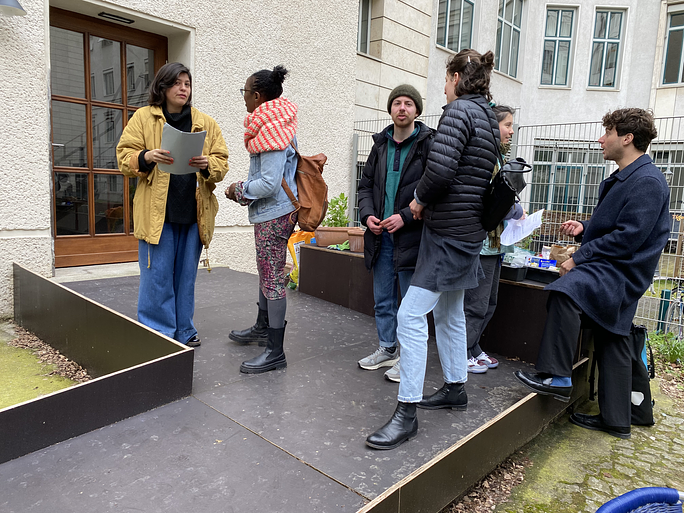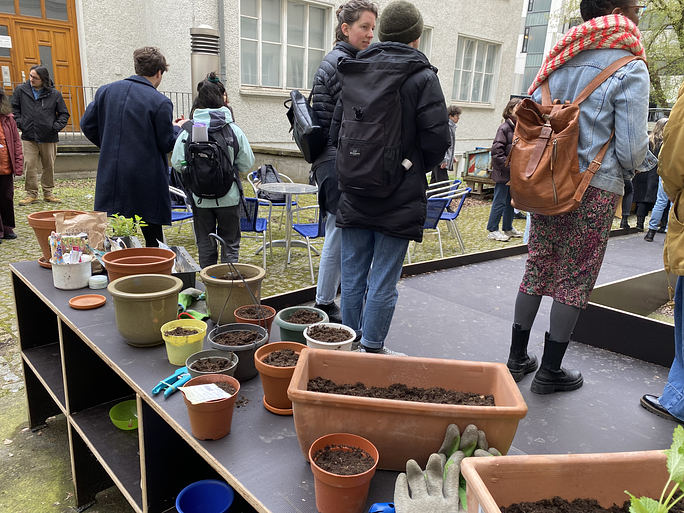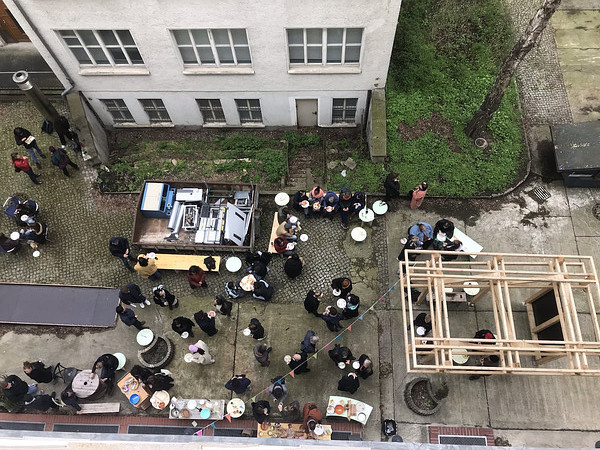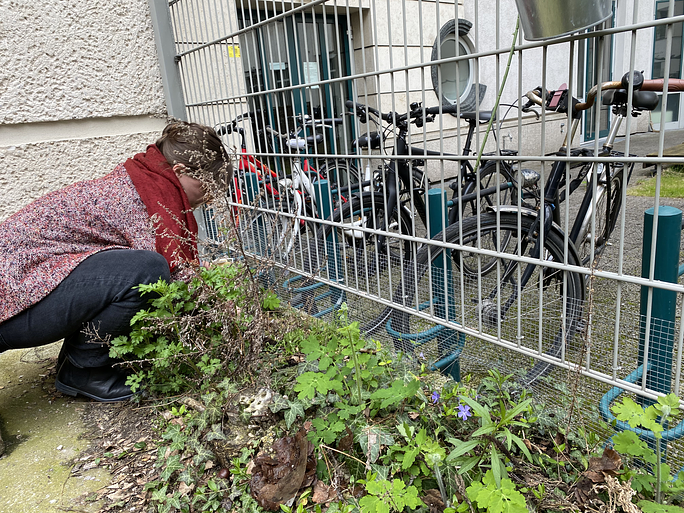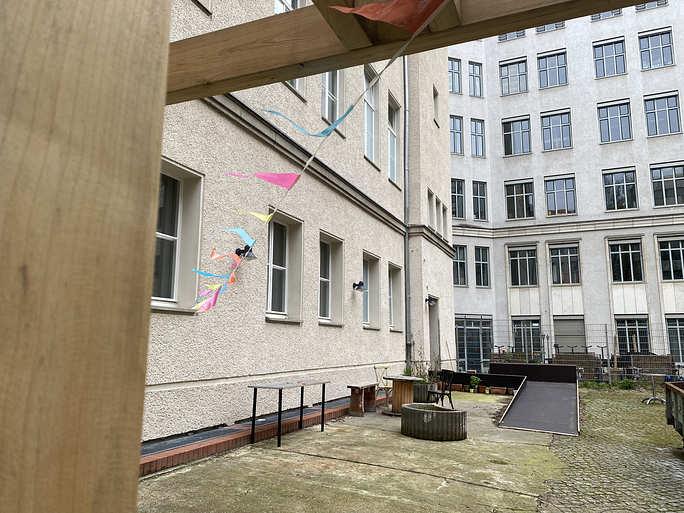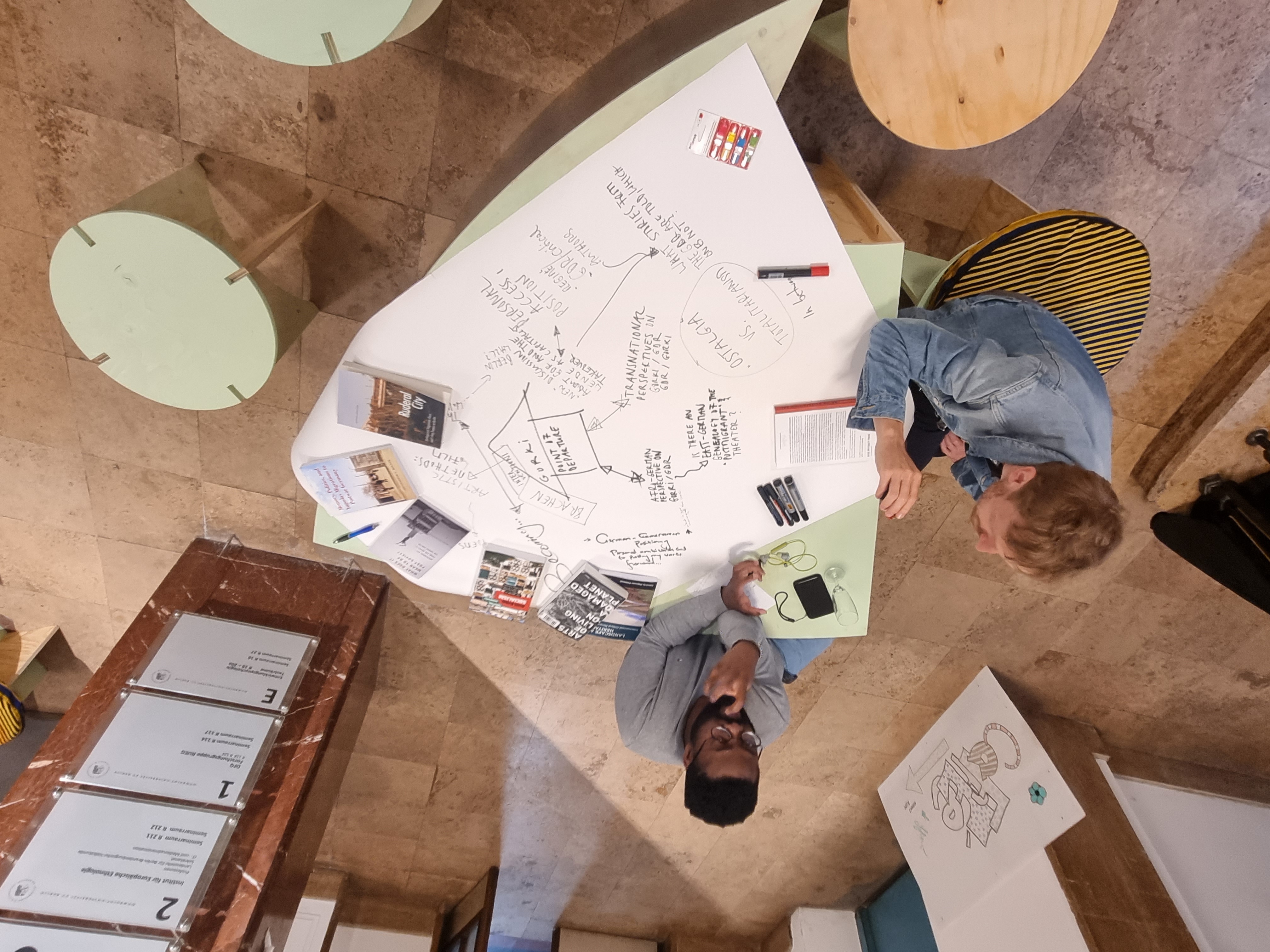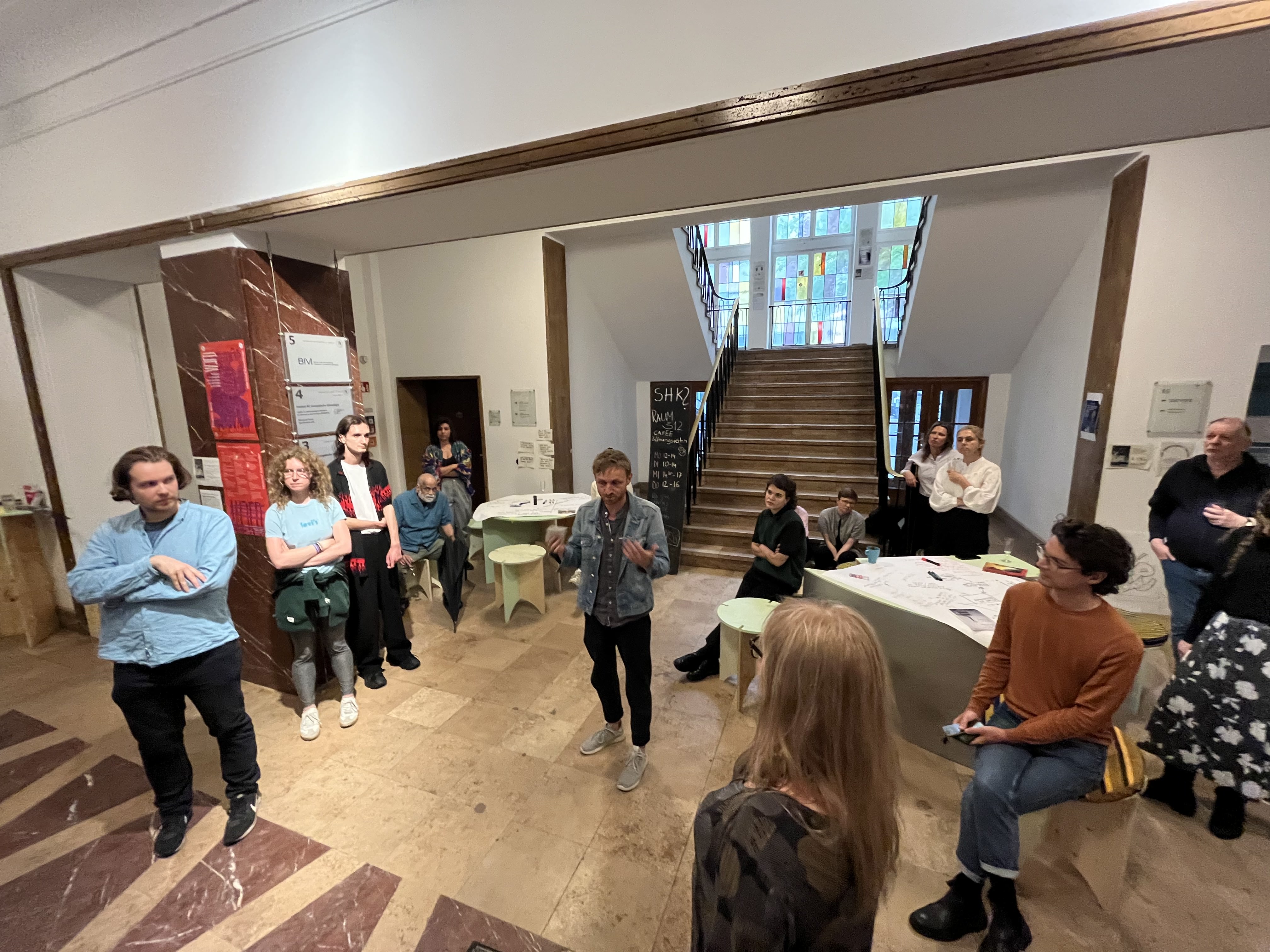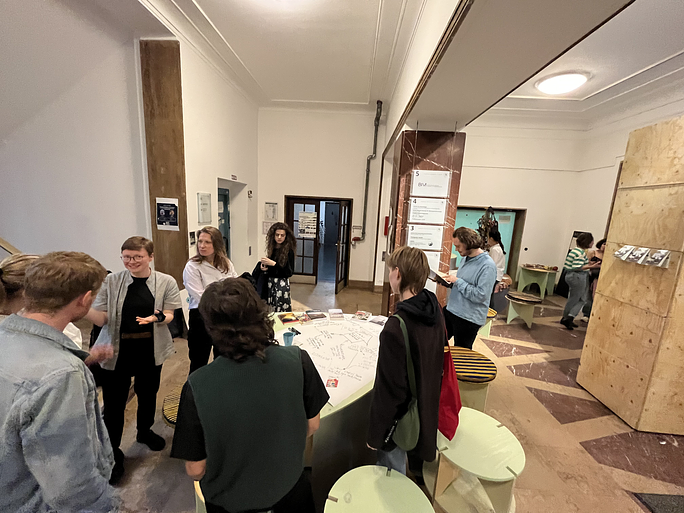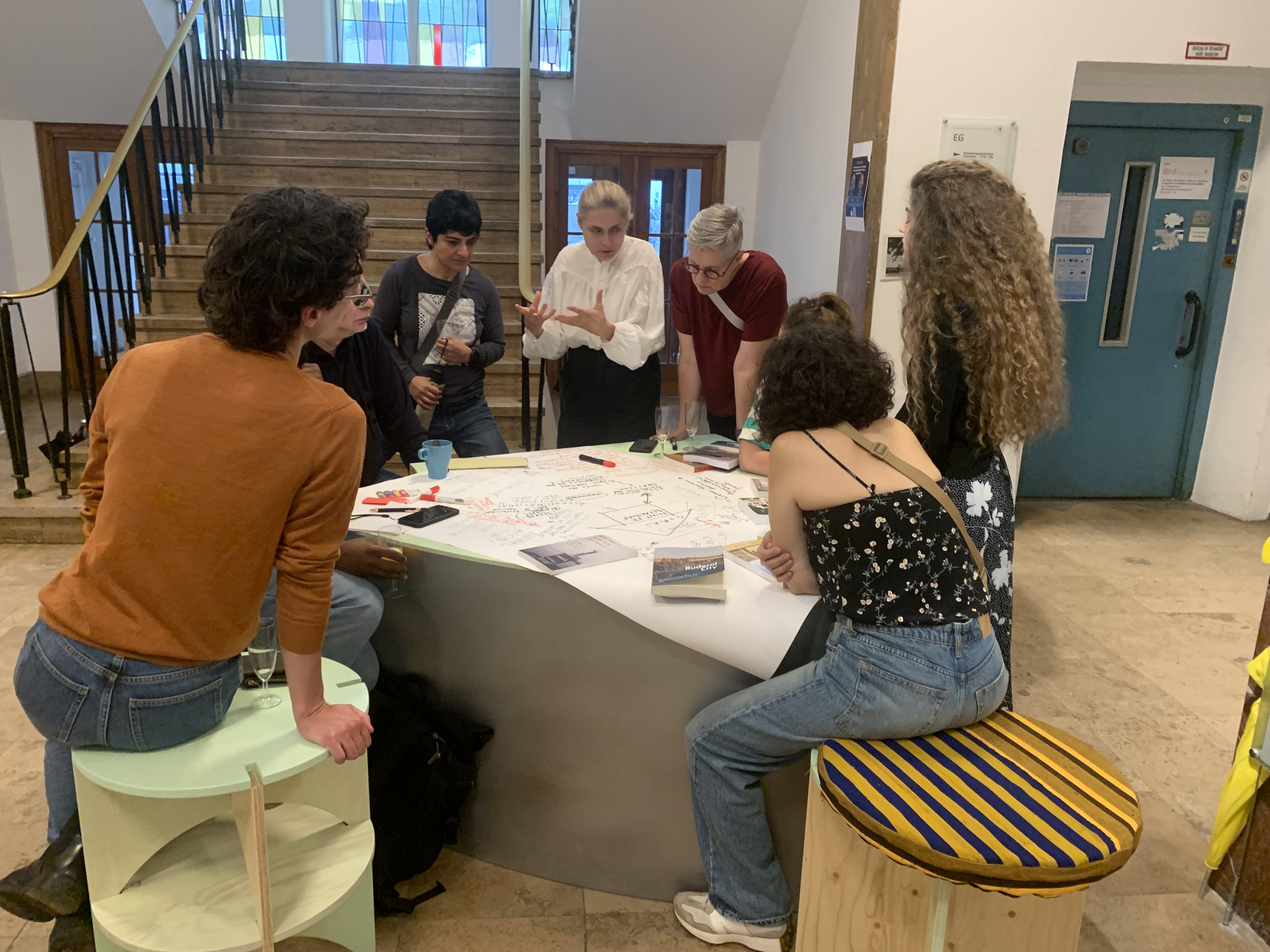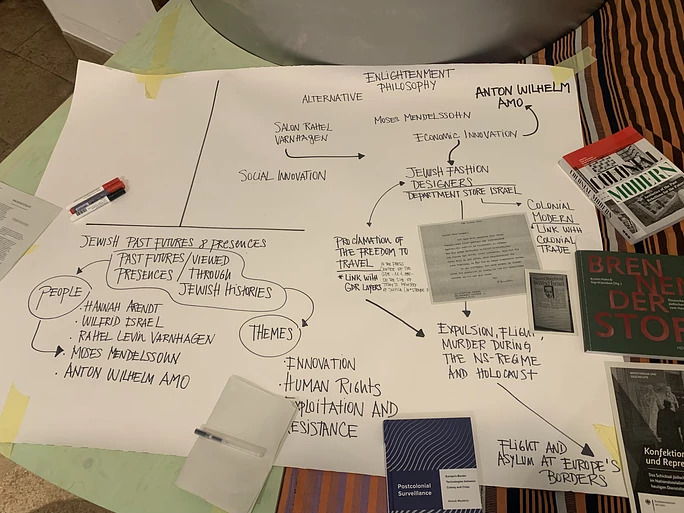AMO SALON Berlin
A publicly accessible space in the center of Berlin that brings together artists, researchers, and members of the civil society to reflect on the city’s colonial past, its impact in the present, and implications for the future.
The Amo Salon is located at Institut für Europäische Ethnologie, Humnoldt Universität zu Berlin
Anton-Wilhelm-Amo-Straße 40/41 (formerly M-Straße)
10117 Berlin
Anton-Wilhelm-Amo-Straße 40/41 (formerly M-Straße)
10117 Berlin
The closest subway stations are:
U Stadtmitte (200m)
U Hausvogteiplatz (210m)
U Stadtmitte (200m)
U Hausvogteiplatz (210m)
The station Stadtmitte has an elevator to the sidewalk, but you have to cross a small street with curb cuts to get to the main sidewalk.The closest bus stops are Jerusalemer Straße (350m) and Werderscher Markt (450m).
WORKSHOPS
Workshops are organised within the framework of the planning towards the annual Flâneries where the collective meets with scholars, artists and activists with shared artistic research history to broaden the scope of dialogue for expansion of ideological and conceptual resources.
Workshops are organised within the framework of the planning towards the annual Flâneries where the collective meets with scholars, artists and activists with shared artistic research history to broaden the scope of dialogue for expansion of ideological and conceptual resources.
PUBLIC ASSEMBLIES
Public Assemblies are part of the publicly accessible preparatory events ensuring our multi-faceted approach within the para/trans academic space.
Public Assemblies are part of the publicly accessible preparatory events ensuring our multi-faceted approach within the para/trans academic space.
AMO SALON + GLOBAL NEIGHBORS
The Amo Salon is a conceptual, experimental, and performative space for revisiting historical and colonial traces, with the aim of reimagining our current societal complexities. At the core of the Amo Salon concept lies the vision of fostering worldwide collaboration and promoting geopolitical awareness. Progress is underway on the African rendition of this space, a homage to Anton Wilhelm Amo, who was born in Axim and rests in Shama, Ghana. This version of Amo Salon is currently taking shape along the Ghanaian coastline.
The Amo Salon is a conceptual, experimental, and performative space for revisiting historical and colonial traces, with the aim of reimagining our current societal complexities. At the core of the Amo Salon concept lies the vision of fostering worldwide collaboration and promoting geopolitical awareness. Progress is underway on the African rendition of this space, a homage to Anton Wilhelm Amo, who was born in Axim and rests in Shama, Ghana. This version of Amo Salon is currently taking shape along the Ghanaian coastline.
